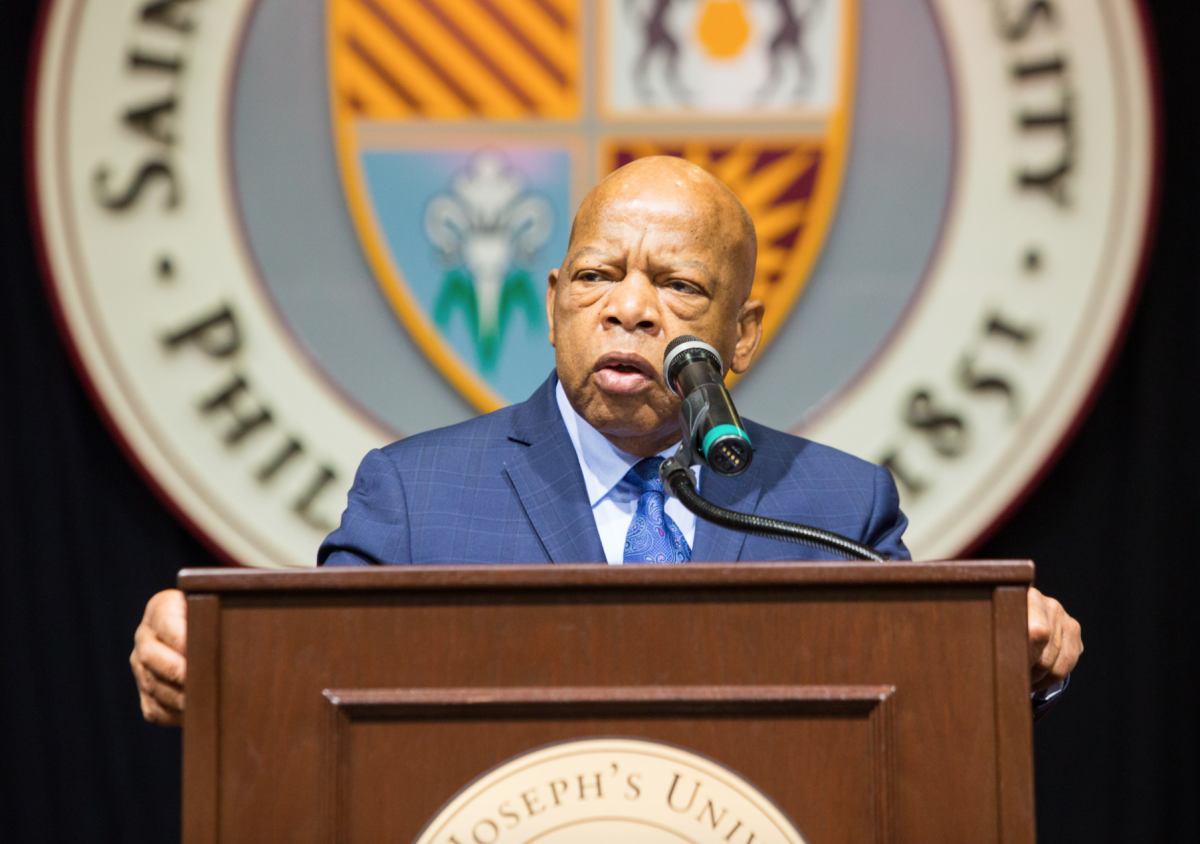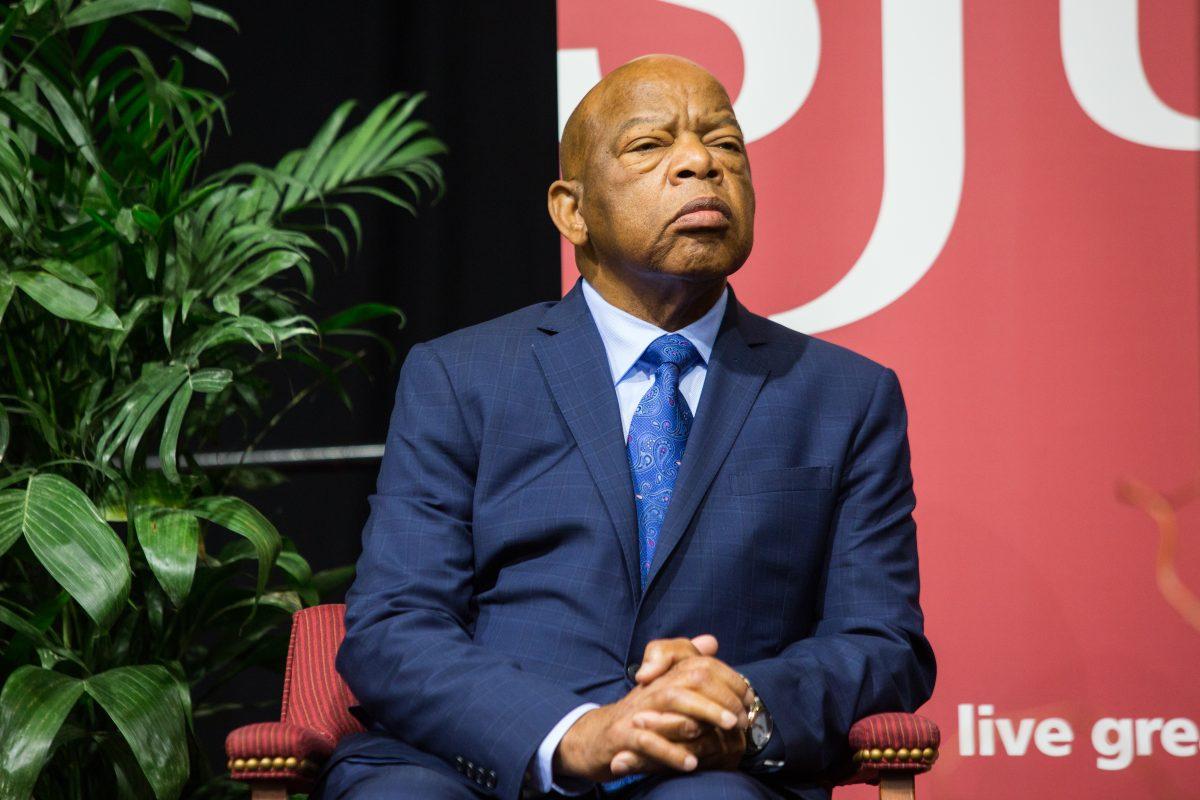King’s mentee tells young activists to speak up
U.S. Rep John Lewis (D-GA) received a standing ovation from the 1,000 St. Joe’s students, faculty, staff and visitors when he walked into the Michael J. Hagan Arena to close out the commemoration of the 50th anniversary of Dr. Martin Luther King Jr.’s speech at St. Joe’s.
The MLK 50th Anniversary Commemoration planning committee invited John Lewis to speak because of his involvement with King during the Civil Rights Movement 50 years ago.
“If it weren’t for Martin Luther King Jr., I don’t know what would have happened to me,” Lewis said.
Randall Miller, Ph.D., professor of history, co-chair of the committee, said John Lewis was the first person they all thought of when deciding who to invite for the commemoration.
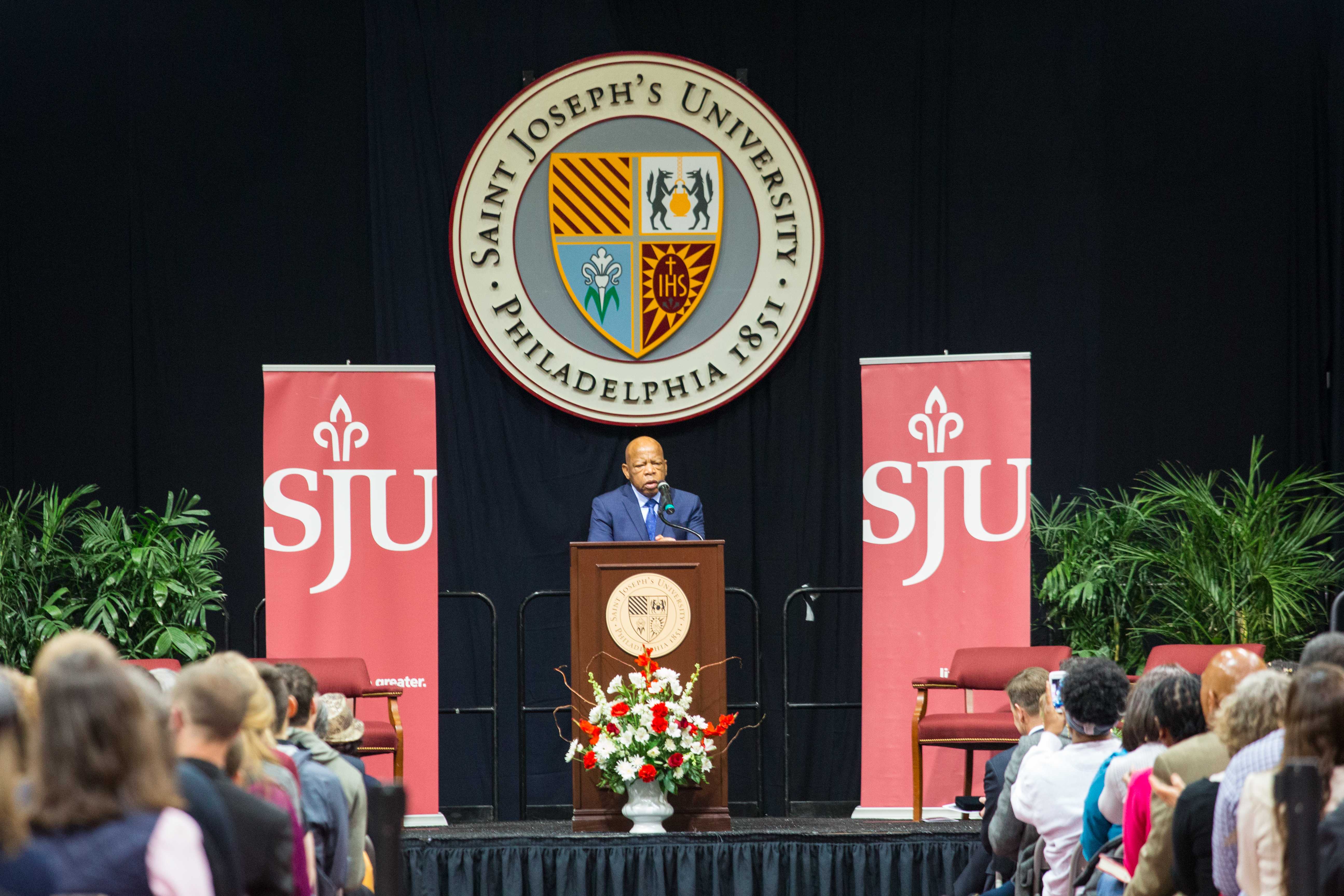
“The idea is that we should have a capstone day in some way, and that capstone should be somebody who knew King in the sense that they shared King’s values and had the conscience, the convictions, and the credibility that King had,” Miller said.
James Mingle ’68, the student president who invited King back in 1967, thought this was the perfect way to end the commemoration.
“His reflections of his relationship and his mentor Dr. King, were wonderful and then to tie into, as Martin Luther King said, back in October 1967, he said, ‘We’ve come a long way, but we have a long way to go,’” Mingle said.

Former mayor of Philadelphia Wilson Goode credits the fact that he was the city’s first African American mayor to the work of King and Lewis during the Civil Rights Movement.
“John Lewis is my hero,” Goode said. “If it were not for John Lewis and Martin Luther King Jr., I would not have been mayor of Philadelphia.”
Before he became a Georgia congressman in 1986, Lewis joined the civil rights struggle in 1965 after he wrote a letter to Martin Luther King Jr. about his application to Troy State College, now Troy State University.
“With John Lewis it’s a really nice way to have someone who was there with Dr. King as a young activist too,” said Monica Nixon, Ed.D., Assistant Provost for Inclusion and Diversity, co-chair of the committee. “He was a student while he was alongside King. When he first started thinking about civil rights and his own involvement with that, he was not unlike many of our students.”
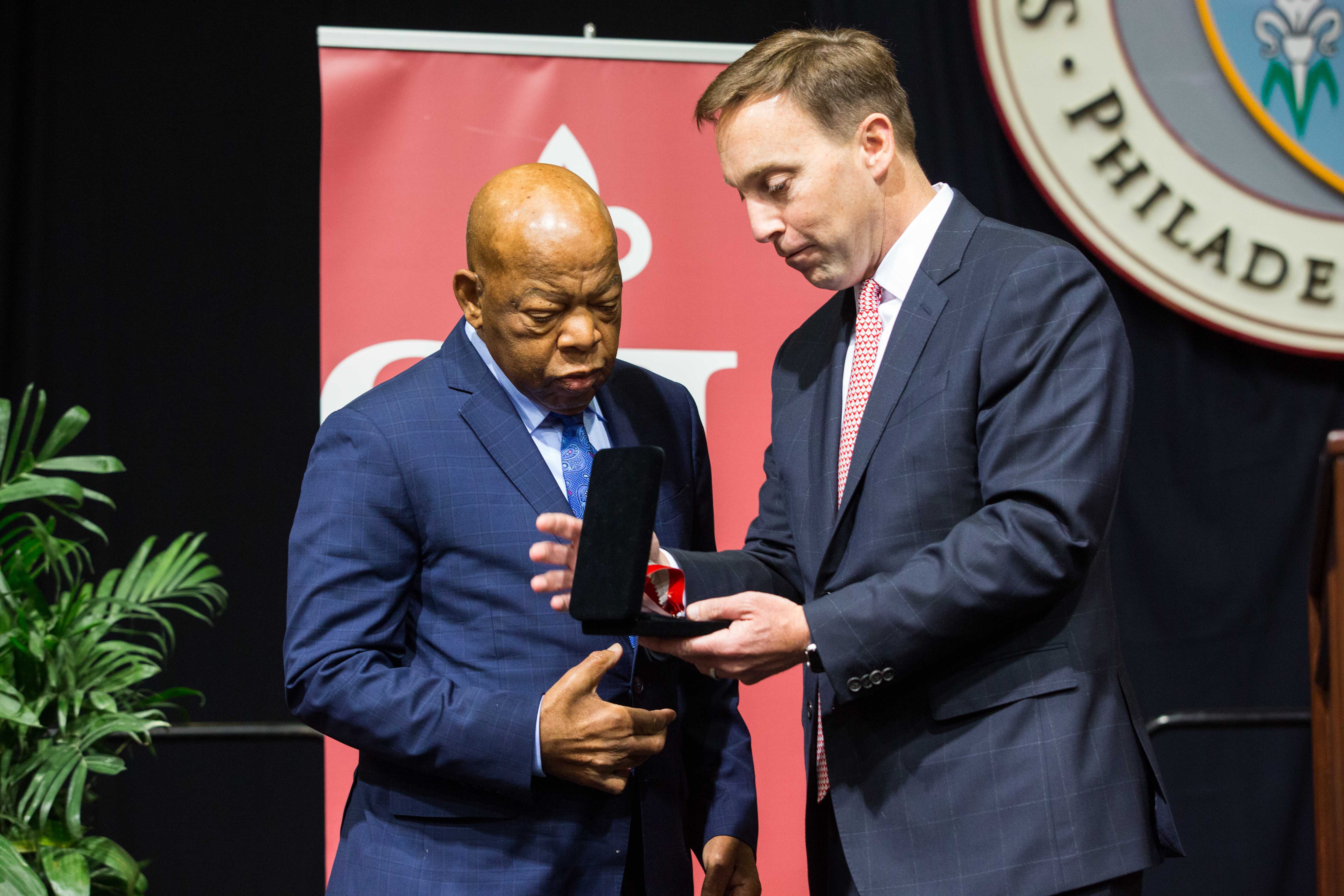
Taicha Morin ’20, the student speaker at the event, addressed similar themes as Lewis, telling students that now is the time to change what they do not like. “We live in a time where a lot of people are standing up against injustices,” Morin said. “It feels like the rebirth of MLK time but I don’t mean protest-wise. This is a revolutionary time to be alive as a young person given all the things that are happening in our country and the world and especially as a person of color.”
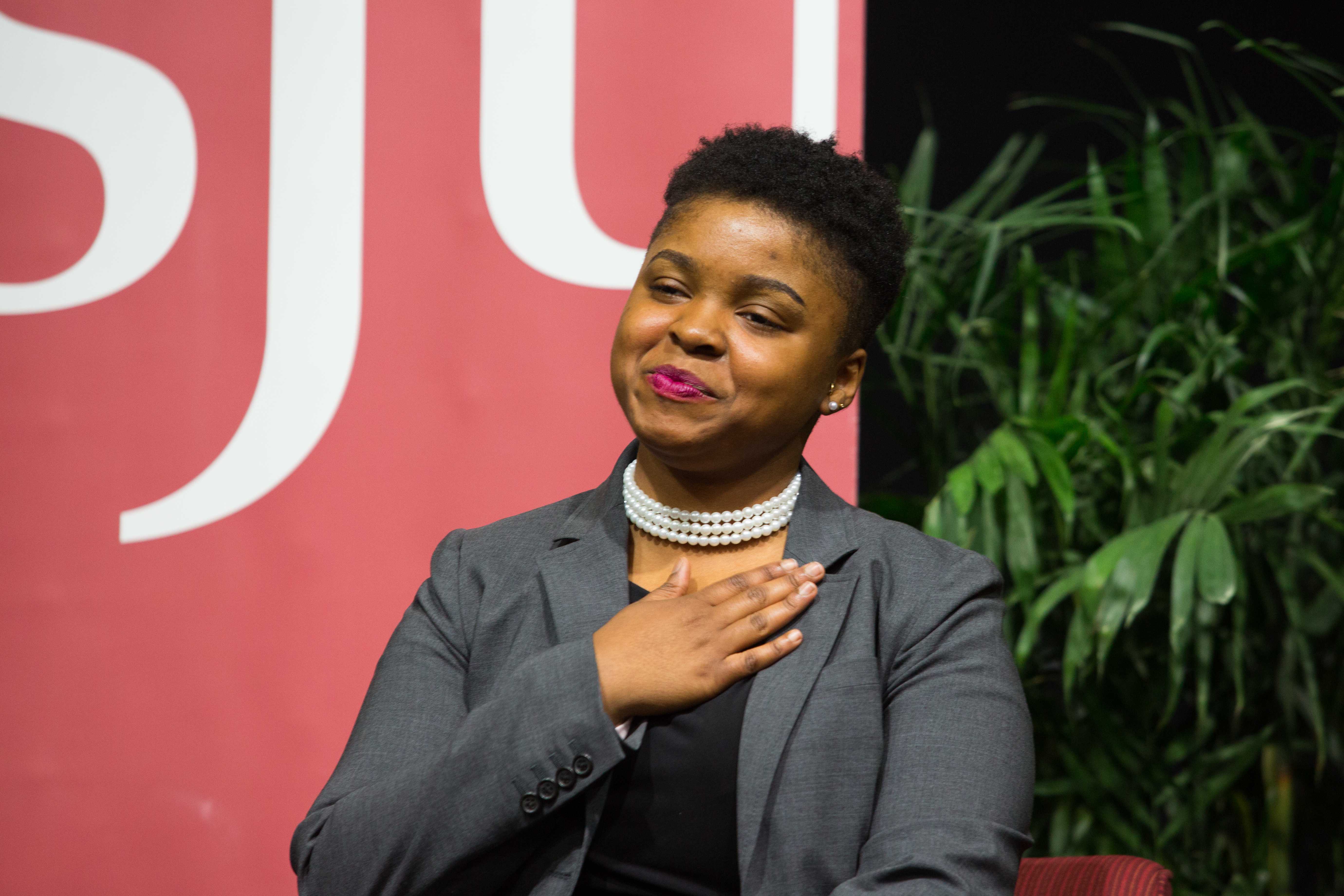
Lewis told the story of when he heard about King, Rosa Parks and other activists on the radio during the Civil Rights Movement who inspired him to get into “good trouble” and “necessary trouble.”
“Today all across America, young people, students, religious leaders, women are getting in trouble,” Lewis said. “My philosophy is very simple, when you see something not right, not fair, not just, give a moral obligation to stand up, to say something, to say something and not be quiet.”
Tyler Jackson ’18 met Lewis after the speech and said that it was an honor to shake his hand and was a very humbling experience to learn about how to be a part of the change in the future.
“I think it was, to me, very effective, very powerful, very empowering especially as an underrepresented student on this campus,” Jackson said. “If Congressman Lewis can do what he did by making it possible for me to be here by taking the beatings and floggings, then I know that I can do the same and be that beacon light of hope for the next group of people that are going to come in after me.”
Lewis encouraged students and young activists like Morin and Jackson to stand up for their beliefs and to challenge injustice.
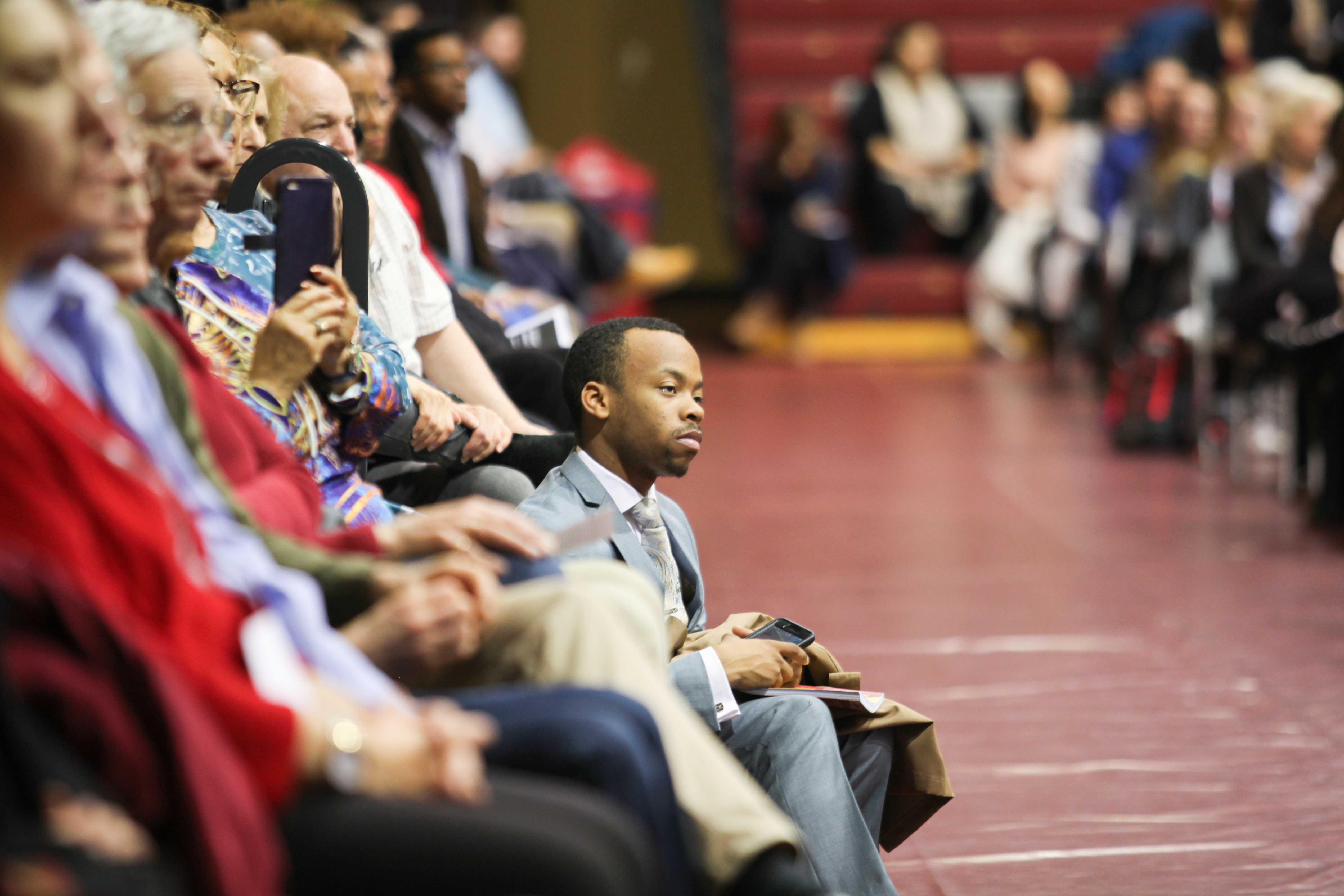
“I think students all over America, when you see something, you organize, you speak up, you speak out,” Lewis said. “But whatever you do, do it orderly, peaceful, and non-violent fashion.”
A group of 4th grade students from Friends’ Central School also heard Lewis’s social justice message. Their teacher, Lauren Tedesco, brought the class on a field trip to hear Lewis speak.
“In the winter we do a civil rights study within the United States, so we have kind of tried to expand from Martin Luther King and Rosa Parks and learn about other people and other figures as well. So when this name came up we had to get here,” Tedesco said. “It was really nice. It was open to the community and schools and everything.”
When King spoke in 1967, the Field House filled with both members of the St. Joe’s community, and the community surrounding St. Joe’s. The committee wanted this to happen again with Lewis.
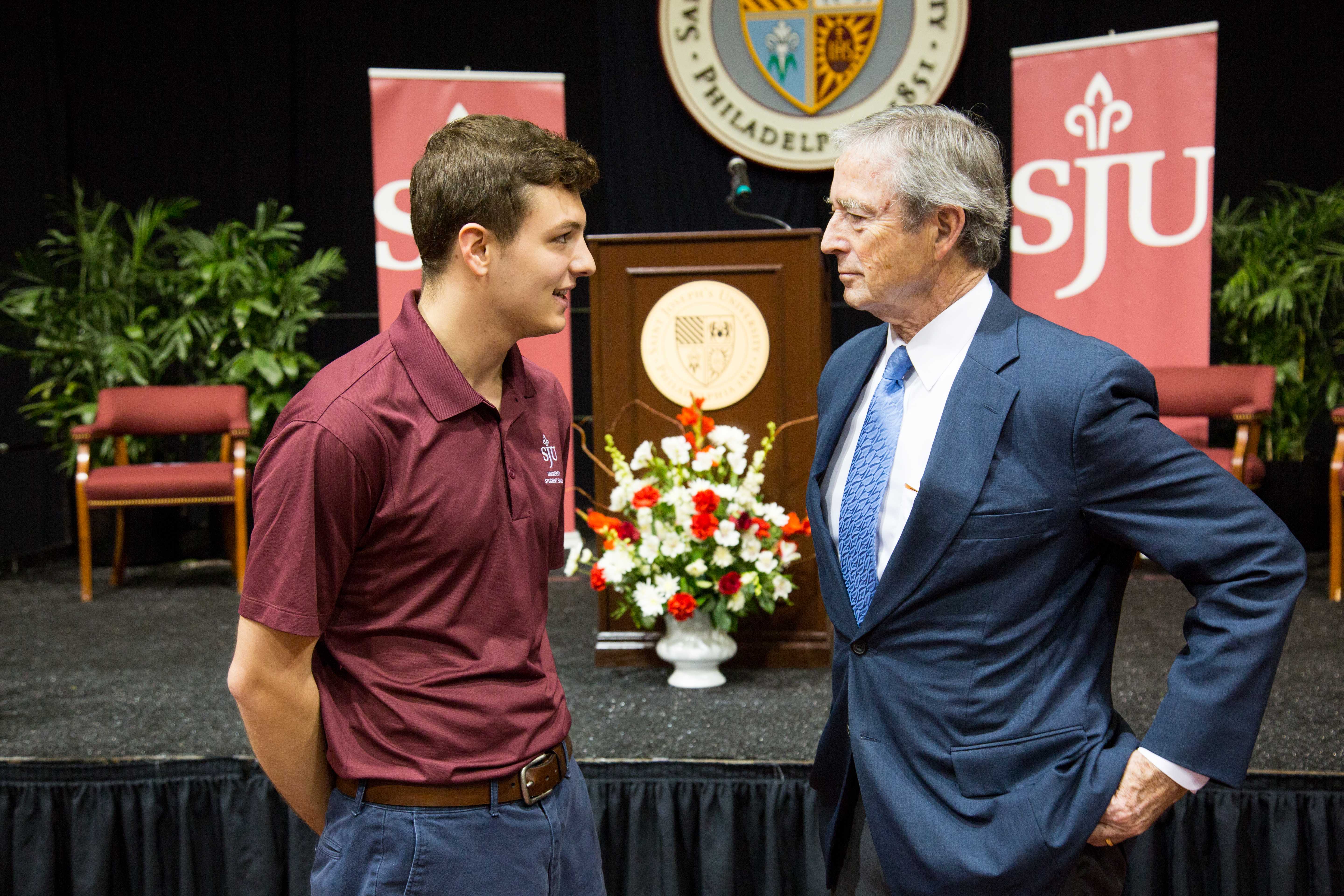
“The events here are not just to be insular, the idea was this is a way that we can understand past ourselves and our obligations, but also a way again of connecting with our community in the area, so there were some members of the community that were actually on the committee,” Miller said.
Dee Dukes ’03, an executive board member of the Wynnefield Residents Association, said Lewis’s speech was inspiring.
“We can make so many changes, and we have to do something,” Dukes said. “And we have to move forward with the legacy and the dreams of Dr. Martin Luther King.”
St. Joe’s president Mark C. Reed, Ed.D., said he was excited to have the community hear about Lewis’ stories and lessons.
“For our community to have the opportunity to hear from somebody who has lived through so much of American History, both the dark parts as well as some of the good parts, is really relevant,” Reed said.
Lewis closed out his speech by telling the story of when he heard King was assassinated in April 1968, and then about the death of Robert F. Kennedy, two months later.
“If these two men had lived, our nation and our world would be better,” Lewis said. “All of us, each one of us, have an obligation, a mission and a mandate to pick up where Dr. King and Robert Kennedy left off. We can do it and we must do it.”













































